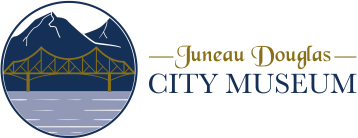Gastineau Channel Memories
Bedford, Don and Carol
Carol Bedford
In late 1947, Don fitted out his car with all the required necessities to drive from California to Anchorage. Some of the many things required were a fire extinguisher, a shovel, a small caliber rifle, a fish net and fishing gear, extra tires, distributor points, generator and starter brushes, spare gasoline and oil, cold weather gear, sleeping bag, mittens, a fan belt, antifreeze (had a heck of a time finding antifreeze as no one used it in California or Oregon), and dried foods. He only drove as far as The Dalles, Oregon, where it was snowing; he literally got cold feet and turned around and drove the car back to his uncle?s farm and took the bus to Seattle. When he arrived in Seattle he got an airline ticket from Boeing Field to Anchorage. Everything was fogged in. However, there were several young men who were turning in their plane tickets to catch an Alaska Steamship that was leaving that day. They invited Don to go with them and he accepted. Upon his arrival in Juneau as it got daylight, he looked around and noticed three Grumman Gooses floating in the water, which intrigued him as he had worked on them while working at Lockheed in California. He went closer to investigate and when he got
to Alaska Coastal?s dock he started asking George Clark, an Alaska Coastal employee, questions about the rail system. When George found out Don was a licensed mechanic, he took him to see Gordon Graham, the shop foreman, who coaxed Don into working at least the few days until the Alaska Steamship arrived in Juneau on its way to Seward with connections by rail to Anchorage. Forty-five years later it was time to retire!
When he arrived in Juneau, there were no traffic problems. Most people walked or took a taxi, and if you owned a car it was either stored for the winter or abandoned somewhere on the street until warmer weather. Bernie Hulk was the police force without a cruiser. The population of Juneau was between 6-7,000 and nobody locked doors. In fact, many people didn?t have a key if there was a lock. Car keys were left in the ignition, as folks knew whose car it was, and it wouldn?t be bothered. If you arrived or left town, everyone knew it as the local paper printed arrivals and departures.
I came to Juneau in July of 1949 for a year. A good friend of mine had graduated from the University of Illinois and had a sister who taught at the University of Alaska in Fairbanks. The sister thought Alaska was the place to be and offered to pay my friend?s way up, if she would only come. My widowed father was getting married again and I didn?t want to live with the newlyweds, so I decided to come to Alaska with my friend. We arrived on the third of July. Seward Street between Willoughby and Front was blocked off as that?s where booths and rides had been set up, to celebrate the Fourth. Shortly after, I was hired by Alaska Coastal Airlines as their statistician. There I met Don, and we were married in 1950, and of course, I am still here.
I am sure others have mentioned the Taku winds, but working at Coastal was a very different experience when the Taku was blowing. The building shook, shuddered and swayed. When an airplane came in, all hands went down to the dock to hold it so it wouldn?t climb up on the dock. Sometimes they guided it over to the elevator and took it to the upper level to unload, with the passengers still aboard.
In the floor of Alaska Coastal?s hangar was a hatch that was referred to as ?Shell?s Million Dollar Hole.? Into this hole went all scrap metal, excess papers and rubbish of all sorts. Don says that on occasion it caught fire, but since they were very fire conscious there were fire hoses all over. Every once in a while someone would slip and fall in, but since the water was so cold they came right back out before they hardly got wet.
Whether you went to Percy?s, Belle?s Caf?, The Sugar Bowl, Diaz Caf? or the Baranof Bubble Room to eat, you would find Armored Cow canned milk on the table. Everyone used canned milk in their coffee. Fresh fruits and vegetables were in short supply, except during the summer when some grocery store owners either grew vegetables or contracted for vegetables in season.
